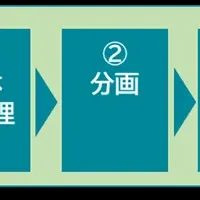
TuHURA Biosciences Launches Phase 3 Trial of IFx-2.0 for Merkel Cell Carcinoma in Partnership with Keytruda®
TuHURA Biosciences Begins Phase 3 Trial of IFx-2.0
In an important development in the fight against cancer, TuHURA Biosciences, Inc. has officially launched a Phase 3 accelerated approval trial of its lead immune agonist, IFx-2.0, as an adjunctive therapy to Keytruda® (pembrolizumab). This trial targets patients suffering from advanced or metastatic Merkel cell carcinoma (MCC), a rare and aggressive form of skin cancer. The trial's initiation represents a pivotal milestone for TuHURA, as it aims to address the significant proportion of patients—between 40% and 50%—who may not respond effectively to current first-line treatments such as Keytruda.
Overview of the Trial
The Phase 3 trial is being conducted under a Special Protocol Assessment agreement with the U.S. Food and Drug Administration (FDA), which is a strong indicator of its potential significance. The primary endpoint of the trial is the Overall Response Rate (ORR), with a key secondary endpoint focused on Progression-Free Survival (PFS). These endpoints not only help set the stage for potential accelerated approval but may allow for a transition to regular approval without the need for a confirmatory post-approval trial.
Patients enrolled in this study will receive IFx-2.0 in conjunction with the standard dosing regimen of Keytruda for a period of three weeks. Following this, patients will continue receiving Keytruda or a placebo as part of the trial's control group. Approximately 118 participants will be recruited from around 22 to 25 locations throughout the United States, with studies set to initiate imminently.
Significance of IFx-2.0
IFx-2.0 is engineered to help patients whose cancer has shown resistance to checkpoint inhibitors (CPIs) like Keytruda. Preliminary data from earlier trials highlighted IFx-2.0's ability to evoke a systemic anti-tumor immune response, where several patients noted an abscopal effect after intratumorous administration. In folks who progressed on pembrolizumab or avelumab therapy, the results revealed a promising overall response rate of 63%. Some responses lasted well beyond two years, underscoring the potential of IFx-2.0's ability to rejuvenate immune response in complex cancer scenarios.
James Bianco, M.D., President and CEO of TuHURA Biosciences, stated, “The initiation of IFx-2.0's Phase 3 trial is a significant milestone for TuHURA and for many patients who have limited options. Our aim is to harness the innate immune response to activate tumor-specific B and T cells as a way to tackle primary resistance to therapies.”
Funding and Future Directions
The commencement of this trial has also triggered a financial milestone, unlocking a third tranche of funding from previously announced financing arrangements amounting to $12.5 million. This capital will support the trial's execution and help advance TuHURA's innovative pipeline, which aims to combat primary and acquired cancer-resistant mechanisms.
As more than half of the planned study sites are expected to be operational within the next month, this rapid progression represents an encouraging step forward. The company looks to not only improve treatment outcomes for parental MCC patients but to also empower oncologists and clinicians with enriched treatment modalities. The trial results will be closely monitored, and if successful, could pave the way for a major shift in how advanced Merkel cell carcinoma is treated.
For up-to-date information regarding TuHURA and its research endeavors, interested readers can explore their official website at www.tuhurabio.com. Additionally, they invite the community to connect via social media platforms such as Facebook, X, and LinkedIn.
Conclusion
In conclusion, as TuHURA Biosciences embarks on this critical Phase 3 trial, the medical and scientific communities eagerly anticipate the results. The hope is that IFx-2.0 will make a significant impact on patients battling advanced Merkel cell carcinoma, potentially transforming treatment protocols in the process.
Topics Health)










【About Using Articles】
You can freely use the title and article content by linking to the page where the article is posted.
※ Images cannot be used.
【About Links】
Links are free to use.